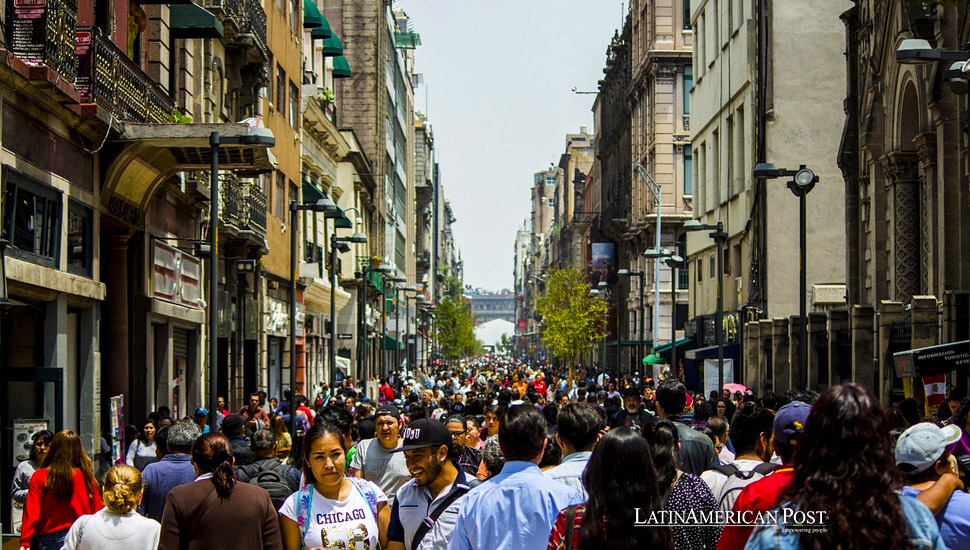Mexico City’s parliament has passed comprehensive reforms to limit rent increases and ensure affordable housing, responding to growing concerns about gentrification and the impact of digital nomads on the local housing market.
In an important step to curb rising housing costs, the Mexico City parliament has approved a comprehensive package of reforms to the Civil Code and Housing Law. The reforms were approved by 57 votes. They introduce a cap on rent increases that is linked to the inflation rate reported by the Mexican central bank in the previous year. The new legislation represents a departure from the previous regulation, which allowed rent increases of up to 10% annually, regardless of inflation.
Under the new rules, landlords must limit their rent increases to the rate of inflation to ensure that tenants do not incur excessive increases. This change will provide relief to many residents who have struggled with rapidly rising rents in recent years. With inflation currently running at around 4 percent, for example, a tenant paying 23,000 pesos ($1,250) in rent could expect a maximum increase of 920 pesos ($50) per month, instead of the previous possible increase of up to 2,300 pesos ($125).
The policy is intended to provide renters with greater financial stability, especially in a city where the average monthly rent has risen to over 23,000 pesos ($1,250) while the average monthly salary is around 5,400 pesos ($295). The gap between wages and housing costs is making it increasingly difficult for families to afford decent housing, exacerbating economic inequalities in the city.
Digital contract register and initiatives for affordable housing
In addition to limiting rent increases, the reforms also mandate the creation of a digital register for rental contracts. Landlords must register all rental contracts within 30 days of signing them, allowing the government to more effectively monitor compliance with the new rules. This digital register is intended to increase transparency in the rental market and provide a central database for tracking trends and disputes in the housing market.
Another important component of the reforms is the commitment to create affordable housing for low-income people. The government will fund the construction of these apartments, targeting vulnerable groups such as single mothers, young adults aged 18 to 35 and workers. By increasing the supply of affordable housing, the city hopes to ease the pressure that drives up rents and displaces long-term residents.
Combating gentrification and the impact of digital nomads
The reforms are part of a broader strategy by the Mexico City government under Mayor Martí Batres to mitigate the effects of gentrification, which has been accelerated by the influx of digital nomads. Since the COVID-19 pandemic, remote work has become more widespread, leading to an increase in the number of foreigners choosing to live in Mexico City, attracted by its cultural vibrancy and relatively low cost of living compared to other global cities.
While the arrival of digital nomads has brought economic benefits, it has also contributed to rising rents and the displacement of residents. The presence of higher-income newcomers willing to pay more for housing has driven up demand, particularly in trendy neighborhoods, displacing longtime residents and changing the character of those neighborhoods.
The government’s response to this trend includes rent control measures and previous reforms to the city’s tourism law that came into effect in April 2024. These reforms introduced new responsibilities and requirements for short-term rental platforms such as Airbnb, aimed at slowing the pace of gentrification.
Stricter rules for short-term rentals and their hosts
The April 2024 amendments to the Tourism Law established a host registry that requires people who rent properties on platforms such as Airbnb to register up to three properties. People with four or more properties must now register as a business with the city’s electronic system for notices and permits for business establishments. In addition, hosts must take out liability insurance for each property and report occupancy data to the local tourism secretariat every six months.
These regulations are intended to curb the proliferation of short-term rentals, which have been blamed for exacerbating the housing crisis by reducing the availability of long-term rentals and driving up prices. By tightening controls on short-term rentals, the city aims to ensure that housing remains accessible to residents and is not dominated by tourists and transient visitors.
The government’s efforts to address the housing crisis reflect a growing awareness of the need for comprehensive policy responses to the challenges of globalization and urbanization. As Mexico City continues to develop into a major global metropolis, balancing the needs of its diverse population with the pressures of a rapidly changing housing market will remain a critical issue.
Read also: Mexico’s “Barrios Mágicos” raise hopes for tourism revival
The recent reforms represent a significant step forward in protecting tenants and preserving the social fabric of Mexico City’s neighborhoods. By limiting rent increases, creating a digital registry for rental contracts, and investing in affordable housing, the city is taking proactive steps to ensure that all residents have access to safe and affordable housing. The impact of these measures will prove to be a critical test of the city’s ability to manage growth and preserve its unique character in the face of global economic trends.

